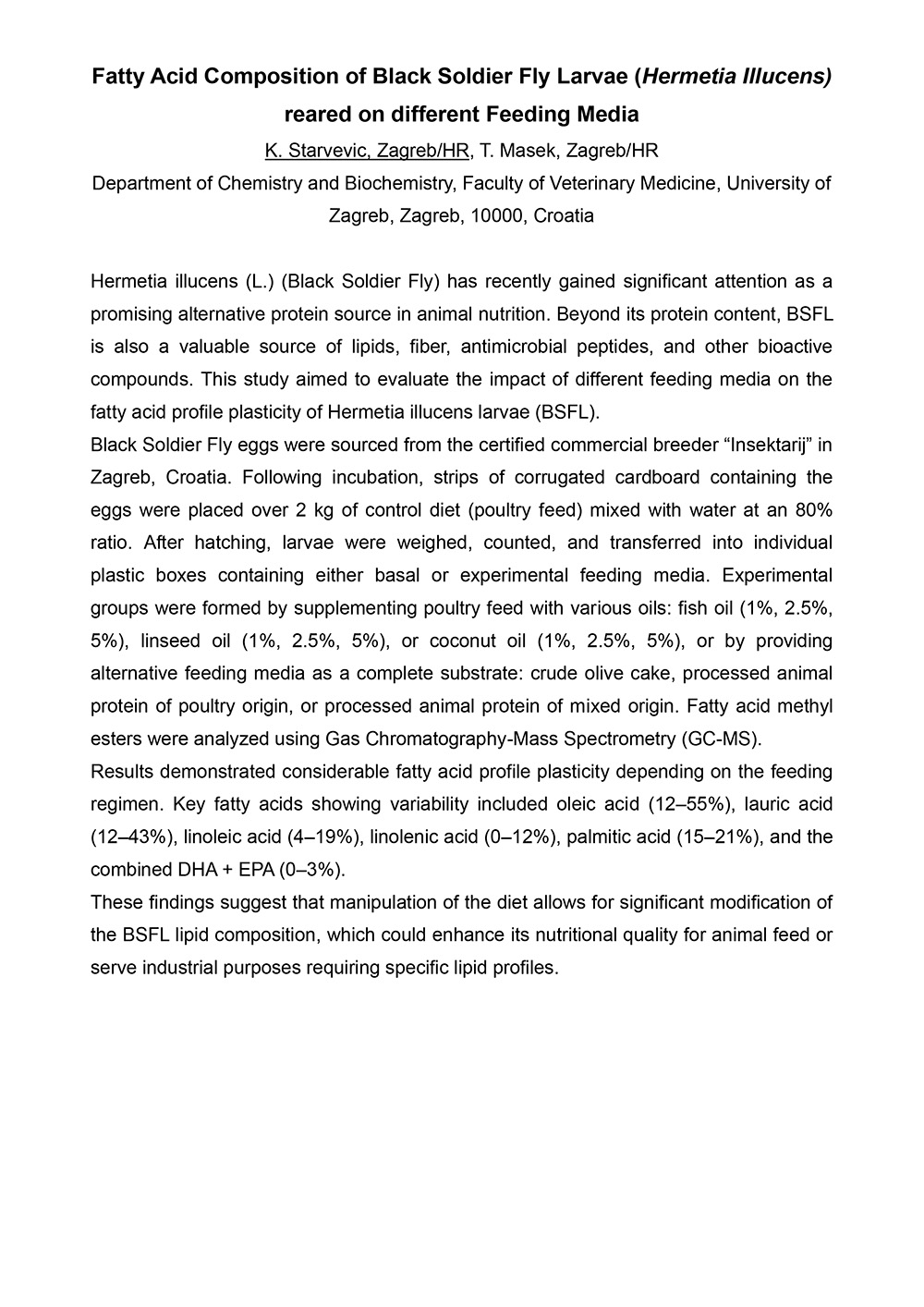Hermetia illucens (L.) (Black Soldier Fly) has recently gained significant attention as a promising alternative protein source in animal nutrition. Beyond its protein content, BSFL is also a valuable source of lipids, fiber, antimicrobial peptides, and other bioactive compounds. This study aimed to evaluate the impact of different feeding media on the fatty acid profile plasticity of Hermetia illucens larvae (BSFL).
Black Soldier Fly eggs were sourced from the certified commercial breeder “Insektarij” in Zagreb, Croatia. Following incubation, strips of corrugated cardboard containing the eggs were placed over 2 kg of control diet (poultry feed) mixed with water at an 80% ratio. After hatching, larvae were weighed, counted, and transferred into individual plastic boxes containing either basal or experimental feeding media. Experimental groups were formed by supplementing poultry feed with various oils: fish oil (1%, 2.5%, 5%), linseed oil (1%, 2.5%, 5%), or coconut oil (1%, 2.5%, 5%), or by providing alternative feeding media as a complete substrate: crude olive cake, processed animal protein of poultry origin, or processed animal protein of mixed origin. Fatty acid methyl esters were analyzed using Gas Chromatography-Mass Spectrometry (GC-MS).
Results demonstrated considerable fatty acid profile plasticity depending on the feeding regimen. Key fatty acids showing variability included oleic acid (12–55%), lauric acid (12–43%), linoleic acid (4–19%), linolenic acid (0–12%), palmitic acid (15–21%), and the combined DHA + EPA (0–3%).
These findings suggest that manipulation of the diet allows for significant modification of the BSFL lipid composition, which could enhance its nutritional quality for animal feed or serve industrial purposes requiring specific lipid profiles.
